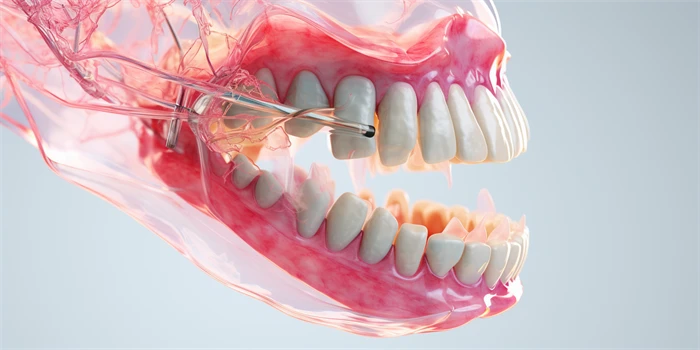Dental crowns are a common dental treatment option used to restore damaged or decayed teeth. They are custom-made caps that are placed over a tooth to improve its shape, size, strength, and appearance. While dental crowns are widely used and highly effective, many people wonder about their health implications. In this article, we will examine dental crowns from various aspects to determine if they are indeed a healthy option.

1. Durability and Longevity
One of the key factors that contribute to the overall healthiness of dental crowns is their durability and longevity. Dental crowns are designed to withstand the forces of biting and chewing and can last for many years with proper care. On average, dental crowns can last anywhere from 10 to 15 years, depending on the materials used and individual oral hygiene habits. However, it is important to note that regular dental check-ups and maintenance are necessary to ensure their longevity.
The cost of dental crowns can vary depending on several factors, such as the material used and the location of the dental clinic. On average, the cost of a single dental crown can range from $800 to $1,500. However, it is advisable to consult with your dentist to get an accurate cost estimate based on your specific case.
2. Biocompatibility
Dental crowns are typically made from biocompatible materials such as porcelain, ceramic, or zirconia. These materials are known for their compatibility with oral tissues and are well-tolerated by the body. When properly placed by a skilled dentist, dental crowns rarely cause allergic reactions or adverse effects. However, individuals with known allergies to certain materials should inform their dentist to avoid any potential complications.
3. Oral Health Maintenance
Dental crowns require regular oral hygiene maintenance to ensure their healthiness. It is essential to brush and floss regularly, paying extra attention to the area where the crown meets the gumline. This helps prevent the accumulation of plaque and potential gum inflammation or decay. Additionally, regular dental check-ups and professional cleanings are crucial for maintaining the health of the natural tooth structure underneath the crown.
4. Restoration of Function
Dental crowns play a vital role in restoring the function of damaged teeth. They provide strength and stability, allowing individuals to chew and bite properly. By improving the functionality of the tooth, dental crowns can contribute to overall oral health and well-being. Patients who have received dental crowns often report an improvement in their ability to eat, speak, and smile with confidence.
5. Aesthetics and Confidence
In addition to their functional benefits, dental crowns also offer significant aesthetic improvements. They can effectively restore the natural appearance of a tooth by matching its color, shape, and size to the surrounding teeth. This restoration of aesthetics can boost an individual's confidence and self-esteem, leading to a positive impact on their overall well-being.
6. Resistance to Stains
Dental crowns made from materials such as porcelain and ceramic are highly resistant to stains. Unlike natural teeth, these crowns do not discolor easily, providing individuals with a long-lasting bright smile. This stain resistance helps maintain the aesthetics of dental crowns, contributing to their overall healthiness.
7. Potential Sensitivity
Some individuals may experience temporary tooth sensitivity after the placement of a dental crown. This sensitivity is usually mild and subsides on its own within a few days or weeks. It is important to note that persistent or severe sensitivity should be reported to a dentist for further evaluation and adjustments.
8. Adjacent Teeth Impact
Dental crowns can have an impact on the adjacent teeth, particularly if the crown is not properly fitted. Ill-fitting crowns can cause bite alignment issues and potential damage to the neighboring teeth. It is crucial to work with a skilled dentist who will ensure the proper fit and alignment of the crown to minimize any adverse effects on the surrounding teeth.
9. Alternative Treatment Options
In some cases, dental crowns may not be the most suitable treatment option. Depending on the extent of tooth damage or decay, alternatives such as dental fillings, inlays, or onlays may be recommended. It is important to consult with a dentist who will evaluate individual cases and provide the most appropriate treatment plan.
10. Overall Safety and Success Rate
Dental crowns have been widely used for many years and have a high success rate. When performed by a skilled dentist and with proper oral hygiene maintenance, dental crowns are a safe and effective treatment option for restoring damaged teeth. The materials used in modern dental crowns are continually evolving, aiming to improve their overall safety and longevity.
Frequently Asked Questions
Q: How long does the process of getting a dental crown take?
A: The process typically involves two visits to the dentist. During the first visit, the tooth is prepared, and an impression is taken. A temporary crown is placed, and the impression is sent to a dental laboratory for the fabrication of the permanent crown. The second visit involves the removal of the temporary crown and the placement of the permanent crown, which is custom-made to fit the tooth precisely.
Q: Are there any dietary restrictions with dental crowns?
A: There are no specific dietary restrictions with dental crowns. However, individuals are advised to avoid biting or chewing on hard objects, such as ice or hard candies, to prevent any potential damage to the crown.
Q: Can a dental crown be replaced?
A: Yes, dental crowns can be replaced if they become worn, damaged, or if there is a need for aesthetic improvement. Consult with a dentist to determine if replacing a dental crown is the most suitable option for your specific case.
References:
- Tooth Crowns: What You Need to Know - WebMD
- Dental Crowns - Colgate
- Dental Crowns: Purpose, Procedure, Complications, Care - Healthline
- The Cost of Dental Crowns - Your Dentistry Guide



